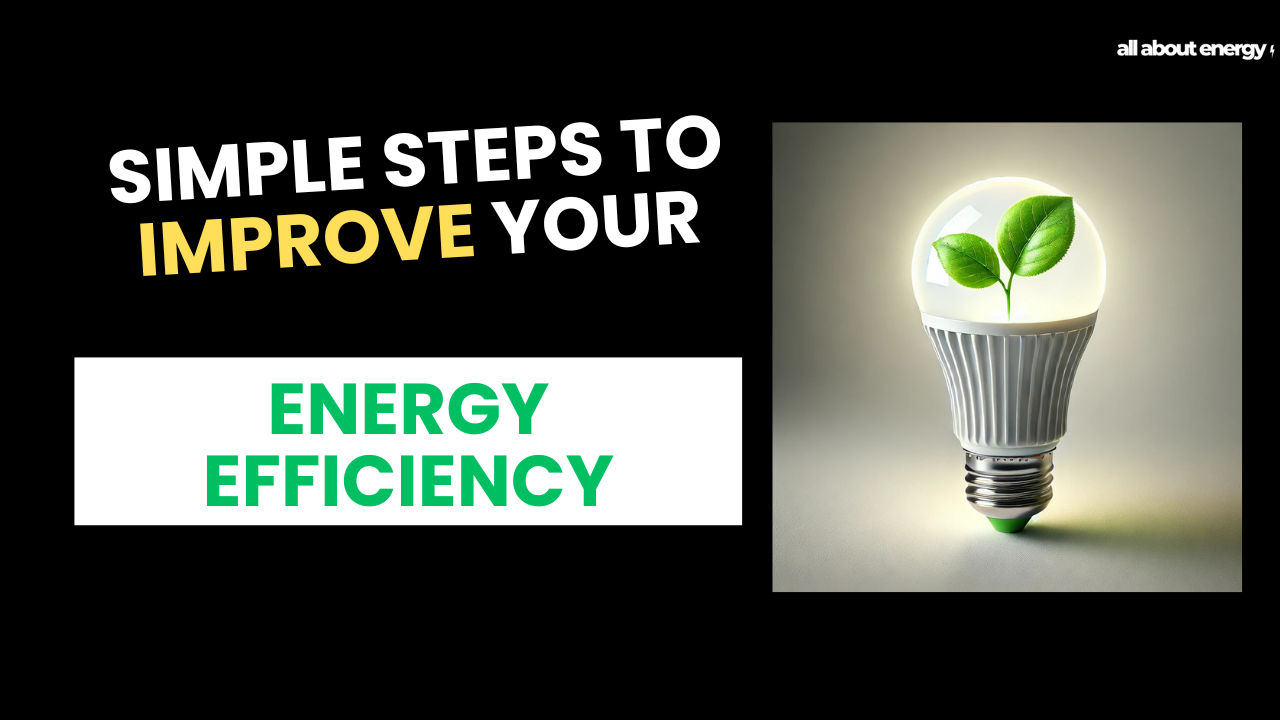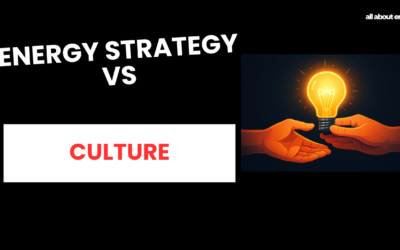Energy Efficiency Simplified
Written by Joe Wright
In today’s competitive and regulated environment, energy efficiency is a business imperative. Whether your focus is cutting costs, meeting compliance requirements like ESOS or SECR, or aligning with net zero goals, improving energy efficiency can deliver transformative results.
Improving energy efficiency is simple but lets first remind ourselves what efficiency entails, then how’s you can use it to make significant gains.
What Is Energy Efficiency?
At its core, efficiency is about achieving a goal with minimal waste, whether it’s time, money, materials, or energy. In the context of energy, efficiency measures how well a system uses energy to perform a specific task. It’s the ratio of useful energy output to the total energy input, expressed as a percentage. The higher the percentage, the more efficient the system.
Key Principles Behind Energy Efficiency
- System Performance vs. Waste: Energy efficiency focuses on minimising the energy that is not directly contributing to the intended purpose. This waste can stem from outdated equipment, poor operational practices, or suboptimal design.
- End-to-End Considerations: True efficiency doesn’t stop at individual systems. For example, a highly efficient boiler may still waste energy if the building it heats has poor insulation or if operational practices are inefficient.
- Scalable Impact: Whether applied to a single process or an entire facility, improving efficiency has a compounding effect on cost savings and carbon footprint reduction.
A Practical Example:
Let’s say you operate a boiler that uses 100 units of energy input to generate 80 units of usable heat. That equates to 80% efficiency, meaning 20% of the energy—and your money—is being lost. Extend this inefficiency across all energy systems, and the financial and environmental impact becomes significant. Furthermore, inefficiencies compound if your building loses heat due to poor thermal performance or if your staff’s habits—like leaving windows open—add to the waste.
Why Is Energy Efficiency Important?
1. Financial Impact
Energy costs often represent a significant portion of operational expenses. Inefficient systems translate to higher utility bills, eroding profit margins unnecessarily. Small inefficiencies can add up to substantial costs. Imagine reducing energy waste by 10% or more. That’s an immediate cut to your operating expenses, with no impact on performance. In fact, it’s common to uncover savings of 20% or more through targeted energy efficiency measures. Money saved through efficiency improvements can be reinvested in other areas of your business, enhancing overall productivity.
2. Compliance and Risk Management
Governments globally are enforcing stricter regulations to reduce energy consumption and carbon emissions. Key frameworks in the UK include:
- Energy Savings Opportunity Scheme (ESOS): Mandates audits for large enterprises to identify energy-saving measures.
- Streamlined Energy and Carbon Reporting (SECR): Requires organisations to disclose energy use and carbon emissions.
- Energy Performance Certificates (EPCs): Demand specific efficiency standards for buildings.
Non-compliance can lead to fines, legal challenges, and reputational damage. Proactive energy efficiency measures not only ensure compliance but also position your business as a leader in sustainability.
3. Sustainability and Net Zero Goals
For businesses targeting carbon neutrality, energy efficiency is a foundational step. By reducing wasted energy, you directly lower your carbon emissions. This not only aids environmental goals but also strengthens your brand’s appeal to eco-conscious customers, stakeholders, and investors. ESG scores are crucial for many investors with many not willing to invest in companies with low ESG scores. You may not be looking for investment now but it may be consideration for the future. It’s better to position yourself in the best way from now to avoid issues in the future.
4. Operational Resilience
Energy efficiency often goes hand-in-hand with modernising infrastructure. Upgrading to efficient systems reduces maintenance costs and enhances reliability, minimising downtime and ensuring consistent performance.
How to Improve Your Energy Efficiency
Improving energy efficiency doesn’t have to be complicated. Start by asking a simple question: How can I achieve the same or better results with minimal waste?
1. Conduct an Energy Audit
An energy audit identifies inefficiencies across your operations. You can perform this internally or hire an external expert to help. The goal is to pinpoint areas where energy is being wasted and prioritise improvements.
2. Upgrade Systems and Technologies
Once you’ve identified inefficiencies, consider retrofitting or replacing outdated systems. For example:
- Heating and Cooling Systems: Upgrade boilers or HVAC systems to more efficient models.
- Motors and Equipment: Install variable speed drives to improve motor efficiency.
- Insulation: Reduce heat loss by improving building insulation.
These upgrades often have a quick payback period, thanks to the resulting energy cost savings.
3. Optimize Processes
Energy efficiency isn’t just about technology—it’s also about how you operate. For example:
- Implement energy-saving practices like turning off equipment when not in use.
- Train staff to recognise and reduce wasteful behaviours.
4. Establish an Energy Management Program
Energy efficiency is an ongoing effort. Monitor your energy performance regularly, set efficiency targets, and engage your team to maintain and
improve results over time. Consider using energy management software to track performance in real time and gain actionable insights.
The ROI of Energy Efficiency
The financial benefits of energy efficiency are often immediate and they are definitely measurable. Savings from reduced energy waste can pay for upgrades in months or a few years. Beyond the financial aspect, these measures also:
- Reduce your carbon footprint.
- Strengthen your reputation as a sustainable organisation.
- Future-proof your operations against rising energy costs and stricter regulations.
Your Next Step
To start your journey toward greater energy efficiency, take our free energy scorecard quiz here.
The assessment takes less than three minutes and provides tailored recommendations for actionable improvements. Don’t wait—start saving money today.
Watch the video for a quick overview of this topic:
Are you looking to improve your organisations energy management practices?
Take our Energy Management Scorecard quiz to assess your current strategies and identify areas for improvement. Click below for the free assessment

You May Also Like…
Compliance Simplified
If you’re part of any of the mandatory compliance scheme like SECR, ESOS, or the many others out there, then you...
Why maintenance matters for energy management
When you think about improving your energy management, where does your mind go first? Upgrades? New systems? Cutting...
Creating A Culture Of Energy Efficiency
If your business is subject to compliance schemes like ESOS or SECR, you’re not alone. A lot of the companies I work...




